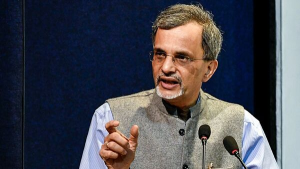India Poised to Become a Semiconductor Hub with Strong Policy Support: Jefferies
India is emerging as a potential global semiconductor hub, driven by favorable government policies, rising demand, and strategic partnerships with Western nations, according to a recent Jefferies report. The country’s success in manufacturing, particularly in the automotive sector, provides a strong foundation to replicate similar growth in semiconductors.
The report highlights key factors fueling this transformation, including fiscal incentives, low-cost manufacturing, a skilled design workforce, and increasing domestic and international demand. India has already secured over $18 billion in semiconductor investments, with five major projects underway. Among them is Tata Electronics’ $11 billion chip fabrication plant, developed in collaboration with Taiwan’s PSMC, set to commence operations in 2026.
Government initiatives are playing a crucial role in accelerating growth. The Indian government aims to boost electronics production to $500 billion by 2030. In FY24, India’s electronics imports reached $60 billion, contributing to 25% of the nation’s trade deficit, second only to oil. To counter import dependency, the government introduced a $10 billion incentive program in 2021, covering up to 50% of project costs for semiconductor and display fabs. With additional state-level support, total fiscal assistance can reach 70%, making India an attractive destination for chipmakers.
India’s semiconductor sector is expanding across the entire supply chain, from chemicals and gases to components and testing facilities. The industry is expected to generate approximately 80,000 direct and indirect jobs. Minister of Railways and Electronics & IT, Ashwini Vaishnaw, emphasized India’s commitment to building a complete semiconductor ecosystem, leveraging its strong design capabilities to attract global players.
While India is still in the early stages of semiconductor manufacturing, its approach focuses on proven technologies rather than competing directly with the most advanced nodes. This strategy mirrors the nation’s automotive industry success, which grew from its nascent stage in the 1980s to become the world’s fourth-largest vehicle producer.
Despite challenges such as an underdeveloped supply chain, limited manufacturing expertise, and global competition, India’s semiconductor ambitions are gaining momentum with strong policy backing and strategic investments.
Source: Moneycontrol




